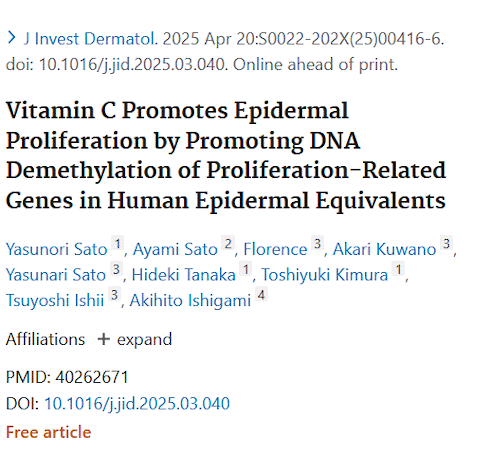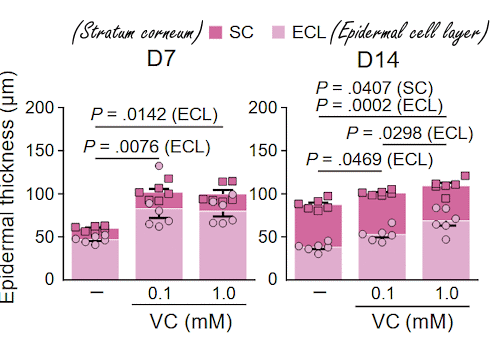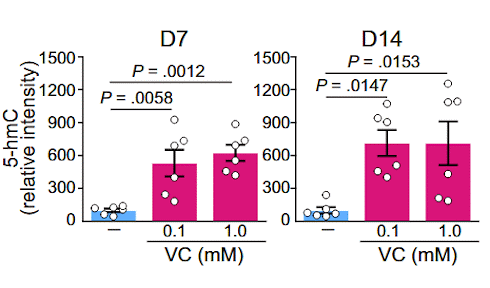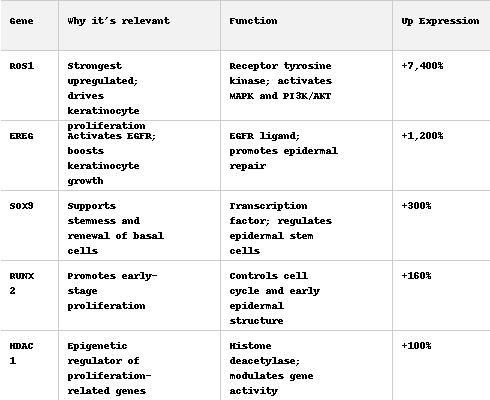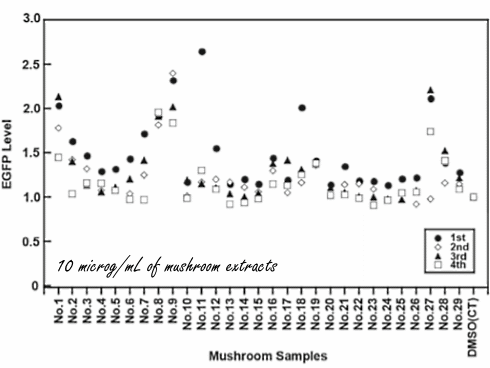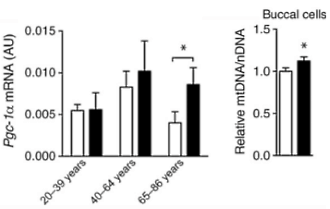|
Definition: "An ergogenic aid is any substance or phenomenon that enhances performance "
|
|
||||||||
29.06.2025 |
|
|
How high doses of vitamin C genetically rejuvenate your skin
If you notice signs of aging in your skin, supplementing with hefty doses of vitamin C could help alleviate the problem, suggests a Japanese in vitro study published in the Journal of Investigative Dermatology.
Study
The Japanese tested concentrations of 0, 0.1 and 1 millimole of vitamin C. In the figures below, the dash [-] represents 0 millimole of vitamin C.
In the skin of young people, the concentration of vitamin C is somewhere between 1 and 10 micromole of vitamin C. In the skin of older people, you find about 70-50 percent of that concentration. [Nutrients. 2017 Aug 12;9(8):866.] Supplementation with high doses may double the concentration of vitamin C in the skin - but then we are talking about supplementation with gram amounts of vitamin C per day.
The reduction in the concentration of vitamin C is a factor in the aging of the skin. As we age, the living part of the skin – the epidermis – becomes thinner and the scaly outer layer, which consists of dead skin cells, the stratum corneum, becomes thicker.
Results
The 'young' concentration of vitamin C made the stratum corneum 18 percent thinner in the second week of the experiment.
Mechanism
5hmC is a genetic cleaning agent. It removes methyl groups from the DNA. As DNA ages, more and more methyl groups that no longer have a function stick to the DNA, causing genes to become inactive. 5-hmC counteracts this.
The increase in cleaning work by 5-hmC made a dozen and a half genes more active. The effect on the 5 most important ones - at least in this experiment - can be seen in the table below. Click on it for a larger version.
"Our results suggest that vitamin C is effective at inducing keratinocyte proliferation and epidermal thickening in a human epidermal equivalent model", write the researchers.
More: Archives:
|
|
||||||||||||||||

